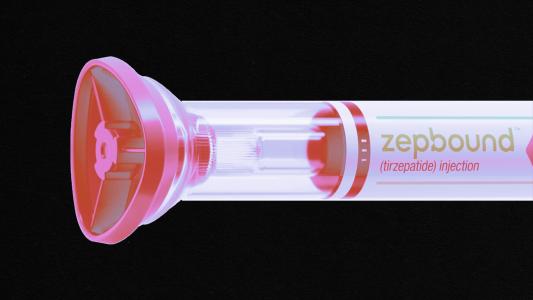People taking a new antiviral for COVID-19 felt almost immediate symptom relief and got better 1.5 days faster, according to a clinical trial conducted in China — but whether the drug will ever be approved in the US is unclear.
The challenge: The FDA has approved two oral antivirals for people with COVID-19 who are at high risk of severe disease — typically, because they’re older, immunocompromised, or have certain underlying health conditions.
If your risk is average, though, your only treatment options are over-the-counter cold and pain medicines, and while those might help reduce your symptoms, they’re not going to speed up your recovery.
“[Simnotrelvir] is clearly a potent drug.”
Saye Khoo
The new antiviral: That’s not the case in China, though. In January 2023, regulators there conditionally approved Simcere Pharmaceutical’s antiviral drug simnotrelvir (brand name Xiannuoxin) to treat mild to moderate COVID-19 in all adults.
That approval was based on an emergency review of trial data, which has now been published in the New England Journal of Medicine. According to the study, the new antiviral delivered almost immediate symptom relief and shortened the infection by a median of 1.5 days.
“[Simnotrelvir] is clearly a potent drug,” Saye Khoo, an infectious disease pharmacologist at the University of Liverpool, who wasn’t involved in the study, told Nature. “It’s clearly got a positive result. And that’s welcome.”
The trial: The trial population included about 1,000 adults with COVID-19 who had been experiencing mild to moderate symptoms for less than 72 hours. About half had at least one risk factor for severe illness (with the most common being excess weight or a history of smoking).
Half of the participants were given a combination of simnotrelvir and ritonavir (an HIV antiviral meant to act as a booster) twice daily for 5 days. The other half received a placebo.
People who took the new antiviral reported feeling almost immediate symptom relief.
In the treatment group, it took a median of 7.5 days for participants to reach “sustained resolution of symptoms,” meaning they hadn’t had COVID-19 symptoms for two consecutive days. In the placebo group, reaching that milestone took a median of 9 days.
People who received the new antiviral also self-reported feeling an almost immediate reduction in symptoms, such as fever, chills, and muscle aches. No serious adverse events occurred in the treatment group during the trial.
The cold water: Since about half of the participants in the simnotrelvir trial also had at least one risk factor for severe illness, we still don’t know exactly what the benefit would be among people who don’t currently qualify for other antivirals in the US.
It’s also possible that the COVID-19 antivirals approved in the US would perform just as well (or better) than China’s new antiviral in people at average risk of developing severe COVID-19 — we just don’t know because no one has trialed them in that population in quite the same way.
Simnotrelvir cost about 75% less than Paxlovid.
A trial of Paxlovid — the most commonly prescribed COVID-19 treatment in the US — in a mix of people with and without risk factors showed no significant benefit, but that group was treated within 5 days of symptoms starting. It’s possible the drug might have worked better if administered during the same early window as simnotrelvir.
Even if it did, though, Simnotrelvir has the benefit of costing about 75% less than Paxlovid, but there’s no indication that it’ll ever be approved in the US — when TIME asked the FDA about the medication, it declined to comment.
The bottom line: Though it’s not exactly a “good” thing, an estimated 75% of American adults have at least one risk factor for severe COVID-19, so most people that want an antiviral can get one (though they may have to specifically ask for it).
Unless something changes, though, it seems the rest of the population is going to have to continue to make do with bed rest and Tylenol.
We’d love to hear from you! If you have a comment about this article or if you have a tip for a future Freethink story, please email us at [email protected].






